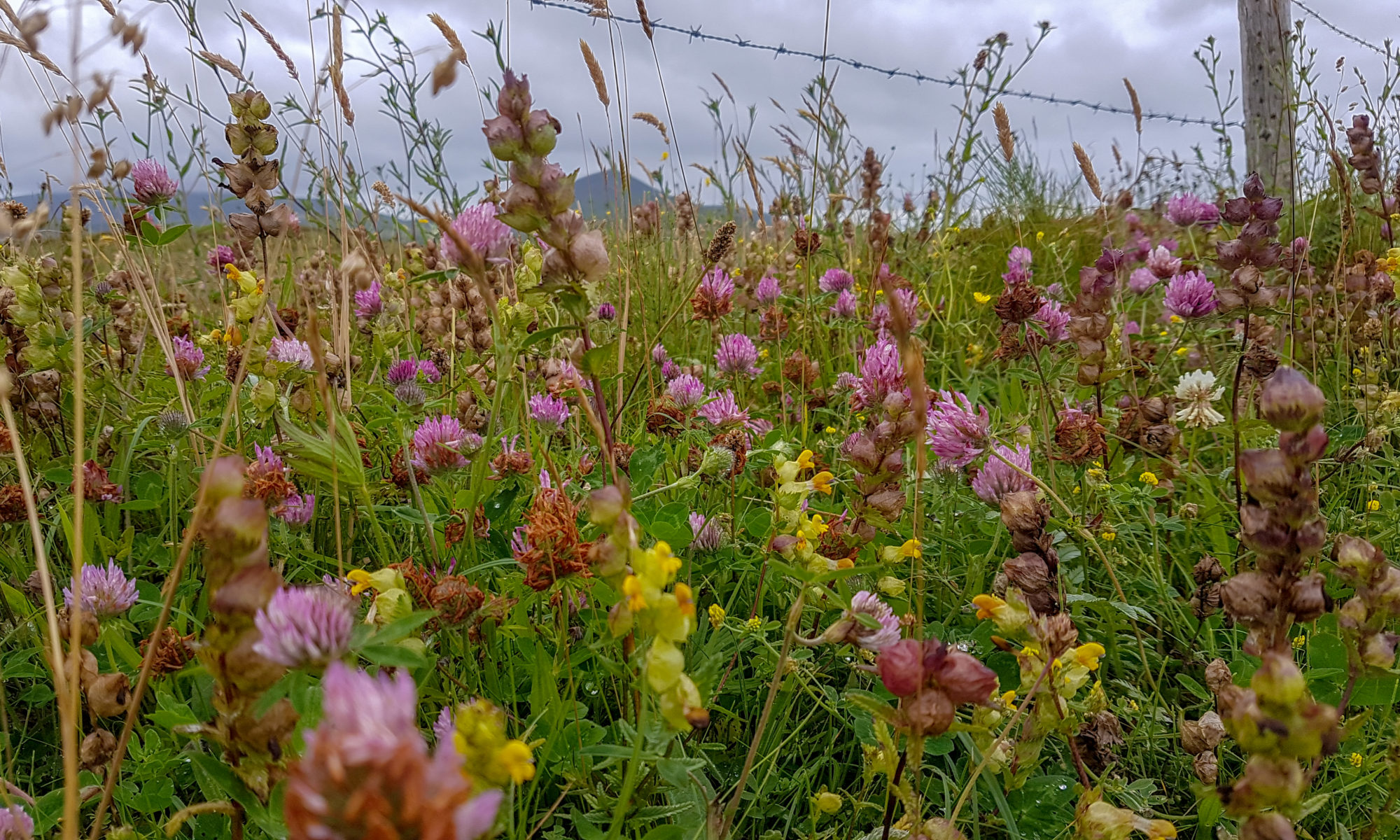Spring or something like it, a respite, a surprise break in the windy winter greyness, opens up randomly in February, giving us still, sunny, maybe even warmish days. Unexpected days. Suddenly you're aware of the birds (perhaps because you can actually hear them when the gales die down), and mud, and if there's not a tinge of green yet, there's a feeling of green. You can relax, stretch, walk outside, breathe deeply. And immediately choke on a lungful of acrid smoke. Because the mountain is on fire.
Yes, it's that annual Kerry tradition, lighting the gorse every time the day is fine and the air is still, blanketing townlands (and last week the entire town of Dingle) under hazy smoke for hours, forcing closed windows and doors on the very days you want to fling them open, and threatening buildings and people as the fires inevitably go out of control. Last year a friend had to leave her house with her family as a fire lit by one of her neighbors crept ever closer. This year (and every year) a farmer was killed when the fire he lit went out of his control.
These fires are legal. That is, they are legal until the 1st of March, and if they are under control. It's hard to see how any of them are under control. And here in Kerry, they're lit well after the 1st of March. They're lit anytime, really, if the wind is down and the day is fine.
 I've taken the blow-in attitude to gorse fires. I'm an outsider; the farmers must know what's best for their land; I grumble only to myself. Sheep and dairy farming are a major source of local employment, and if these fires are necessary for better grazing, I guess we all have to put up with smoke on what would otherwise be the best days of the year.
I've taken the blow-in attitude to gorse fires. I'm an outsider; the farmers must know what's best for their land; I grumble only to myself. Sheep and dairy farming are a major source of local employment, and if these fires are necessary for better grazing, I guess we all have to put up with smoke on what would otherwise be the best days of the year.
Then, last week, in an Irish Times article on this year's first gorse fire death, I saw a key phrase: "…sheep farmers burn scrub in the belief it encourages better grass growth." The belief? The belief?! Is it not established fact? Farmers, my neighbors, are lighting the hills on fire, sometimes killing themselves, forcing firefighters to spend hours trying to get them under control, risking homes and property, on a belief?
Thus began my research into gorse control. As always when investigating a new topic, I'm amazed at how an offhand glimpse through the porthole reveals an entirely new world. Rub the dirt off the glass, look again, and yep, people have a lot to say–a lot–about gorse control. Especially New Zealanders.
Turns out that hillside gorse is the potent, scrubby hoodlum of the hills, overpowering grass, sending out its seeds in a spectacular spring burst, and not only resisting, but thriving on the various attempts to kill it off (you can also make wine from it). Patient New Zealanders have 10 year plans for effective gorse control, including spraying, controlled fires, and rotational grazing.
No aspersions intended, but this sort of long-term planning is not in vogue in West Kerry. I suspect more of a "sure, let's light it, what's the harm?" kind of attitude. So it's light the fire and get the hell out of the way (gorse, apparently, is full of oil that burns like, well, oil, in a speedy and nearly impossible to control combustion). And hope it's doing some good for the pasture.
Newspaper articles on the latest close call or actual fatality are always carefully worded, with the fire chief "reminding" farmers that they need to alert the gardai when they're planning to light a fire (one can only imagine the confusion/hilarity in the local garda station if a farmer actually walked in and told them he was about to light the hills on fire), that it needs to be controlled at all times, and that they're only legal until March 1st.
These polite reminders won't change a thing. The laws aren't enforced and the populace aren't complaining. Um, except for me.
